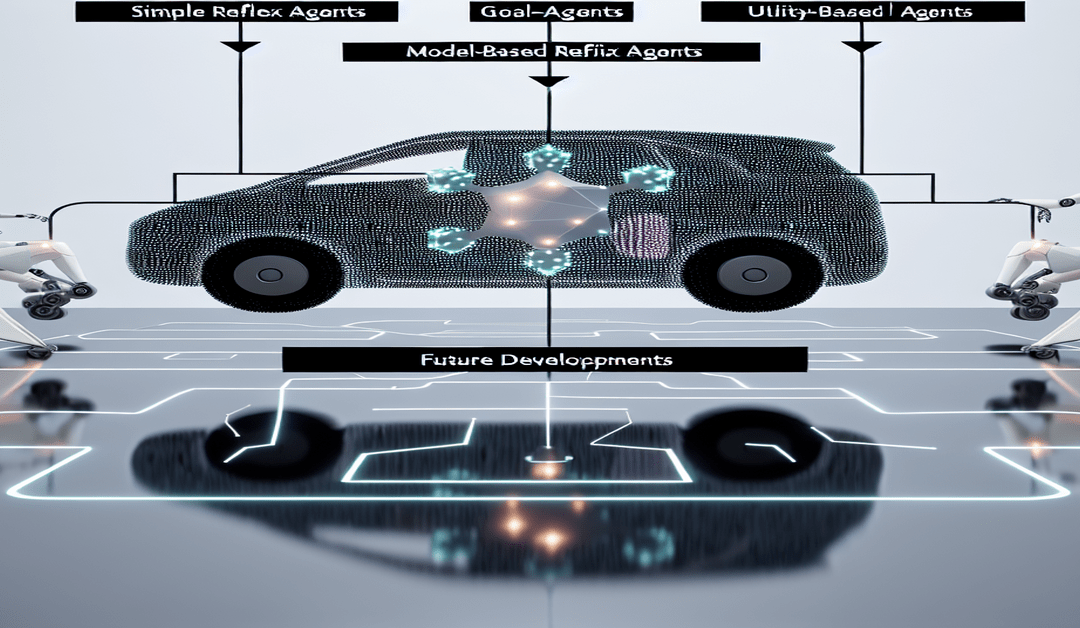The Rise of AI Agents: Revolutionizing the Landscape of Artificial Intelligence
In the rapidly evolving world of artificial intelligence, a new wave of tools is emerging that promises to transform various industries and reshape the way we interact with technology. These tools are known as AI agents, and they represent the next frontier in AI development. But what exactly are AI agents, and why are they so significant?
Understanding AI Agents
At its core, an AI agent is a program or system that perceives its environment and takes actions to achieve specific goals. These agents can operate autonomously or semi-autonomously, making decisions based on the information they gather and the objectives they are designed to pursue. This ability to perceive, reason, and act independently sets AI agents apart from traditional software programs.
Types of AI Agents
AI agents come in various forms, each with its own characteristics and capabilities. Some of the most common types include:
1. **Simple Reflex Agents**: These agents react to the current state of the environment without considering past experiences. They follow a set of predefined rules to determine their actions based on the immediate sensory inputs they receive.
2. **Model-Based Reflex Agents**: These agents maintain an internal state to keep track of the current state of the environment. They use this internal model to make predictions and plan their actions accordingly.
3. **Goal-Based Agents**: As the name suggests, these agents have specific goals they aim to achieve. They choose actions that are most likely to lead them closer to their desired outcomes, taking into account the current state of the environment and the potential consequences of their decisions.
4. **Utility-Based Agents**: These agents select actions based on a utility function that estimates the desirability of each action. They consider not only the immediate consequences but also the long-term rewards or penalties associated with each choice.
The Next Wave of AI Tools
As AI technology continues to advance, we can expect to see more sophisticated AI agents that integrate multiple types of agents and leverage cutting-edge technologies such as machine learning, natural language processing, and computer vision. These advanced agents will be capable of handling complex tasks, adapting to changing environments, and making intelligent decisions in real-time.
Applications Across Industries
The potential applications of AI agents are vast and span across various domains. In healthcare, AI agents can assist in personalized medicine, helping doctors make more accurate diagnoses and treatment recommendations based on patient data. In finance, AI agents can analyze market trends, predict investment opportunities, and automate trading decisions. In transportation, autonomous vehicles powered by AI agents can navigate roads safely and efficiently. And in customer service, chatbots powered by AI agents can provide instant support and resolve queries, enhancing the overall customer experience.
Challenges and Ethical Considerations
As AI agents become more autonomous and influential, it is crucial to address the challenges and ethical considerations that come with their development and deployment. Accountability is a major concern, as it becomes increasingly difficult to assign responsibility for the actions of AI agents. Transparency is another key issue, as the decision-making processes of AI agents can be opaque and difficult to interpret. Privacy is also a significant concern, as AI agents often have access to vast amounts of personal data. And perhaps most importantly, ensuring that AI agents align with human values and do not perpetuate biases or make unethical decisions is a critical challenge that requires careful consideration and ongoing monitoring.
The Future of AI Agents
As we look to the future, it is clear that AI agents will play an increasingly important role in shaping the world around us. Researchers and developers are working tirelessly to create more intelligent and adaptable agents that can learn from their environments and interact seamlessly with humans. One exciting area of development is multi-agent systems, where multiple agents collaborate to achieve complex tasks that would be impossible for a single agent to accomplish alone.
The rise of AI agents represents a major milestone in the evolution of artificial intelligence. As these tools become more sophisticated and ubiquitous, they have the potential to revolutionize industries, streamline processes, and unlock new possibilities for innovation and progress. However, as with any powerful technology, it is essential that we approach the development and deployment of AI agents with caution, ensuring that they are designed and used in a responsible and ethical manner.
As we embrace this new wave of AI tools, it is up to all of us – researchers, developers, policymakers, and citizens alike – to work together to shape a future where AI agents serve as valuable allies in our pursuit of a better world. By staying informed, engaged, and proactive, we can harness the power of AI agents to drive positive change and create a brighter tomorrow for all.
#AIAgents #ArtificialIntelligence #FutureOfAI
-> Original article and inspiration provided by TheConversation.com – Brian O’Neill
-> Connect with one of our AI Strategists today at Opahl Technologies

